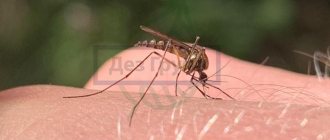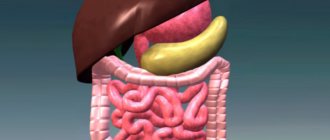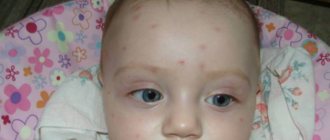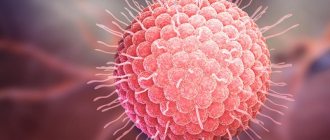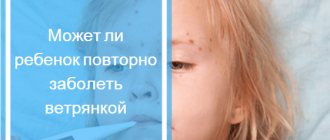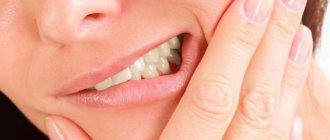Category: Good to know Published 03/25/2018 · Comments: · Reading time: 6 min · Views: Post Views: 1,551
Chickenpox in both adults and children causes skin rashes that are accompanied by severe itching. It is especially important not to scratch the blisters, so as not to cause infection and complicate the course of the disease. Antihistamines for chickenpox relieve itching, so they are included in the treatment regimen for all ages.
Suprastin, Zyrtec, Fenistil, Erius, Zodak for chickenpox are considered one of the effective antiallergic drugs. We will talk about some of them further.
Antihistamines for chickenpox in children
This type of medication blocks histamine receptors in the body, thereby inhibiting the effects it mediated. Antihistamines are often used to reduce allergic reactions in the respiratory tract, skin, cardiovascular system, gastrointestinal tract and muscular system.
This group of drugs is divided into 3 generations:
- The 1st generation of drugs is characterized by a rapid therapeutic effect and elimination from the body; their use in acute allergic reactions shows a positive effect. Discharged in a short course. They have a number of side effects, which leads to a decrease in demand among consumers. Have a sedative effect. The most striking and effective representatives of this type of drugs are: Tavegil (clemastine), Suprastin (chloropyramine), Pipolfen (promethazine), Fenistil (demitindene). These drugs have an effect for chickenpox in children and are prescribed by doctors in cases of a high allergic reaction of the body to the rash;
- The 2nd generation is characterized by a high and long-lasting effect on the body; they are used no more than once a day. They have few side effects and do not have a pronounced sedative effect. Representatives of second-generation antihistamines are: Zyrtec (cytirizine) - from 6 months, Claritin (loratadine) - from 2 years, Erius (disloratadine) - from 1 year, Xyzal (levocetirizine) - from 2 years. The effectiveness of these drugs has been proven;
- The 3rd generation of antihistamines are characterized by a long stay in the body and a high effect. They are considered the safest and most effective and are used in the treatment of chronic allergies. These include: Gismanal (astemizole) - from 2 years, Telfast (fexafenadine hydrochloride) - from 6 years, Trexil (terfenadine) - from 3 years;
For children, antihistamines are available in the form of ointments, gels, syrups, dragees, drops, and tablets.
Possible side effects:
- 1st generation – visual impairment, nausea, constipation, urinary retention, tachycardia, drowsiness, etc.;
It is worth noting that in cases of use of 1st generation antihistamines, side effects are observed most often. In a number of countries, the production and sale of these medicines is subject to a ban.
- 2nd generation – have a negative effect on the cardiovascular system, headache, nausea, nervous system disorders, etc.;
- 3rd generation – negative effects when using this type of medicine are observed very rarely. These include: dizziness, headache, nausea, arrhythmia, tachycardia, shortness of breath (very rare), mild sedation (very rare);
Antihistamines are used as anti-itch medications. Considering the possibility of aggravating health conditions in the event of an overdose, the use of these medications in the treatment of chickenpox in children is possible only after consultation with a specialist and with strict adherence to the instructions and medical prescriptions.
Doctors do not recommend the use of antihistamines in the treatment of mild chickenpox in a child.
Folk remedies
You can relieve itching from chickenpox using folk remedies. Parents can use:
- chamomile,
- soda solution,
- bergamot and olive oil,
- celandine and mint.
You can soothe the irritated skin of a small patient with chamomile at home. It should be taken orally in the form of a decoction. You can also add chamomile decoction to the bath while bathing your child.
Soda solution is very effective in combating itching due to chickenpox. You need to wipe the baby's skin with a cotton swab.
If you mix a couple of drops of bergamot ether and olive oil, this remedy will not only soothe, but also significantly soften the skin. The wounds will heal much faster.
Mint, celandine, marigold, and calendula are often used to wipe the skin and rinse the mouth. This effectively reduces severe itching.
Antiviral drugs for chickenpox in children
So. Antiviral drugs have a direct effect on the virus, preventing its self-reproduction and thereby reducing the activity of the virus in the body. In addition to targeting the virus, some antiviral drugs can act on the child’s immune system. Such medications belong to immunomodulatory drugs that interact directly with interferon in the body. Simply put, they stimulate the immune system.
Since chickenpox is a disease caused by a virus of the herpes family, we should be interested in antiherpetic drugs. The most effective antiviral drug against herpes viruses types 1, 2 and 3 is Acyclovir (active ingredient - acyclovir). Can be used from a very early age.
How does he work? Acyclovir is an artificially created nucleotide. As you know, the action of any virus in the body is to invade healthy cells, after which the virus uses this cell for self-reproduction. Not the entire cell, but only its protein and DNA synthesis systems, which involve special molecules - nucleotides. After entering the diseased body, Acyclovir, under the influence of a viral enzyme (thymidine kinase), is converted into a nucleotide and in this form allows itself to be “gobbled up” by the virus. The virus, having received a false nucleotide, also receives a “failure in the development program,” that is, it stops developing and reproducing. This “failure” leads to the death of the virus, although the cell also dies (this is not scary, every day millions of cells die in you and every day the same number of new ones are born). Other antiviral drugs work on the same principle.
In addition to Acyclovir, there are other antiherpes medications:
- Famvir (active ingredient - famciclovir). There are no age restrictions;
- Ganciclovir (similar in composition to acyclovir). It is administered intravenously. There are no age restrictions. In addition to its antiherpetic properties, it is active against citalomegalovirus. A specific drug is prescribed in the most severe cases;
- Valaciclovir (valaciclovir hydrochloride). When it enters the body, it is converted to acyclovir. There is no age limit as such, although use under 2 years is not recommended;
- Viferon (rectal suppositories). The active ingredient is interferon alpha-2b. Helps increase the activity of the immune system, as a result of which it has an antiviral effect. The drug itself has no effect on the virus, but by strengthening the immune system, the body fights viruses on its own. There are no age restrictions;
- Anaferon for children (tablets). The active substance is affinity-purified antibodies to human gamma interferon. Increases the activity of the immune system and, as a result, enhances the body's antiviral response. Age restrictions – from 1 month;
- Kipferon (rectal suppositories). Active substances – immunoglobulin complex preparation, interferon alpha – 2b. It works on the principle of the previous two, but at the same time has a direct antiviral effect. Relatively expensive. There are no age restrictions. Considered one of the most effective among immunostimulants;
- Cycloferon (tablets, ampoules, ointment). The active substance is meglumine acridone acetate. Its properties resemble Kripferon. Relatively inexpensive. There are no age restrictions, the tablets are recommended for use from 4 years of age (due to the undeveloped swallowing reflex);
Possible side effects: nausea, diarrhea, urinary retention, nervous system disorders, arrhythmia, tachycardia, etc.
It is recommended to begin using immunomodulators in the treatment of chickenpox in a child only after consulting with your doctor.
Additional drug therapy
Antiviral drugs for chickenpox are aimed at reducing the symptomatic manifestations of chickenpox and improving the general condition of the patient, however, this group of medications does not have the antiseptic properties that are necessary to prevent secondary infection. To do this, as a complex therapy, antivirals for chickenpox must be combined with certain medications.
Additional drug treatment.
- Miramistin. Used from the age of one month onwards. An important advantage is free application to mucous membranes. It perfectly relieves itching (though not for long), as well as redness in the rash area. However, the number of uses is not limited. It comes in the form of a large bottle with a spray and lasts for a long time.
- Calamine. It is produced as a lotion, which contains natural ingredients. It has an excellent antiseptic and antihistamine effect, relieves itching and inflammation, normalizes skin color, and accelerates the healing process of wounds. It is used as an additional remedy because it relieves only the external symptoms of illness.
Antiviral drugs for chickenpox in children are a necessary component of drug therapy when the disease is severe. The appointment should be made only by the attending physician, who will take into account the child’s age and the general condition of his body. You should not self-medicate, despite the abundance of information about various medications. Only a competent medical professional is able to choose the right treatment tactics.
Chickenpox symptoms
Before you begin to treat itching in a child, you need to find out how the disease manifests itself. Chickenpox is infectious in nature. The disease is transmitted to healthy children through contact. If a child develops symptoms before the age of 12, there is no need to worry too much, since at this age the disease is in most cases harmless.
Symptoms of the disease in children:
- lethargy, weakness;
- severe itching;
- loss of appetite;
- headache;
- high body temperature;
- rash all over the body followed by the formation of blisters.
The disease develops due to the fact that the body is affected by the herpes virus type 3. It penetrates healthy cells and begins to multiply there. At some point, there are too many viruses in the cells of the epidermis - then a rash appears.
The most popular (but not the most effective) remedy for treating chickenpox rashes is brilliant green.
If the red spots are not dealt with in any way, they turn into blisters with liquid, which then burst and become very itchy. A dried crust forms in place of the burst bubble. If you do not treat it with medications in time, scars will remain later. In addition, scratching sores leads to negative consequences:
- secondary bacterial infection, when the skin becomes inflamed and purulent wounds form;
- redness in new areas of the body due to the spread of the pathogen;
- inflammatory process in the deeper layers of the skin.
How to treat chickenpox: methods and remedies
In fact, children with normal symptoms of the disease do not need drug therapy. Their immunity is able to resist the activity of the pathogen and recover quickly enough even without chickenpox pills. An effective method of preventing complications in children with a mild form of the disease is the correct use of external ointments, gels and creams to treat the rash.
There are many ointments for lubricating chickenpox pimples. And today, the usual green stuff is giving way to other more effective options. As a cure for chickenpox for young children, the brilliant green solution was popular only among residents of the countries of the former Soviet Union. At the same time, few people were known in foreign medicine.
The composition of brilliant green includes ethyl alcohol, which, after application, dries and irritates the cells in the affected areas. This is especially true for children 1-5 years old and people with delicate and sensitive skin. Along with this, the dye has no evidence of carcinogenic safety. Therefore, doctors advise paying attention to more modern and truly helpful remedies for chickenpox for adults and children:
- soothing - Fenistil, Calamine, Tsindol, zinc ointment, etc.;
- a product with antiviral components - Acyclovir, Miramistin;
- drugs with local immunostimulating effects - Cycloferon, Viferon;
- solutions of essential oils - celandine, calendula, tea tree.
A solution of potassium permanganate has a certain disinfecting effect, which makes short-term baths useful during chickenpox.
The virtual absence of systemic medications for chickenpox for both adults and children has a beneficial effect on the functioning of internal organs, since, for example, a remedy for bacterial infection can cause digestive upset and intestinal dysbiosis. In addition, complex drugs have many side effects that are difficult to take into account when self-medicating.
Read: In what cases can a test for chickenpox be prescribed and what do the test results indicate?
How to relieve itching on the skin and mucous membranes?
Quarantine measures are used for 3 weeks and brilliant green is used as an antiseptic. Despite the simplicity of this remedy, many doctors still prefer it to treat rashes. Zelenka prevents infection from spreading throughout the body and, most importantly, is safe for children. However, many consider brilliant green a dubious drug for combating chickenpox, and here's why:
- the product does not eliminate itching;
- does not soothe the skin;
- has minimal antimicrobial and zero antiviral effect.
In addition, overly neat and clean mothers do not like brilliant green, because it leaves marks on clothes that are difficult to wash off. Pharmaceutical companies today offer a sufficient number of alternatives to this treatment that quickly eliminate all the symptoms of chickenpox. Let's take a closer look at them.
Medicines for children
In the acute course of chickenpox, only symptomatic drugs are usually used in a minimum dosage to relieve itching, redness of the skin and other manifestations of the disease. Only in particularly severe cases are immunomodulatory drugs used to support weakened immunity.
The skin rash is accompanied by unpleasant sensations; the child complains of severe burning and itching. The disease has an undulating course, which further complicates the patient’s life.
To eliminate symptoms, doctors prescribe several groups of drugs for children:
- antipruritic ointments, lotions, gels with zinc oxide - Zinc ointment, Tsindol, Calamine;
- broad-spectrum antihistamines - Suprastin, Zyrtec, Fenistil, Zodak (we recommend reading: how to use the drug "Zirtec" for children);
- antiviral agents that directly kill the herpes virus - Acyclovir;
- antibacterial drugs to prevent secondary bacterial infection when vesicles rupture - Rivanol, Fukortsin.
Komarovsky's recommendations
Komarovsky recommends using the products exclusively in tablet form. If you use creams and ointments, you may accidentally exceed the dose. To distract children from itching, you need to play with them more. But it’s better to temporarily avoid swimming.
If the house is warm enough, you can keep the baby naked. Komarovsky does not agree with grandmothers who, in the old fashioned way, smear their skin with brilliant green. An experienced doctor says that brilliant green has no benefit, it has only one positive effect - it is an indicator of new rashes.
On the forums you can read that a positive effect is observed when treating itching with homeopathy. It is more gentle and can be used in both children and adolescents. But still, drugs should be selected individually and it is better to select them together with a doctor. Mothers recommend feeding their babies light food when they are sick.
What are antihistamines?
Histamine is a substance that our body produces during allergic and inflammatory processes occurring in it. It is antihistamines that relieve (or significantly reduce) itching, swelling of the skin, and pain.
Any prescribed medications of this spectrum will calm your skin as well as your nervous system.
There are now 3 generations of drugs of this type. I will try to describe them all in as much detail as possible, and also provide you with a complete list of medications that doctors most often prescribe in case of chickenpox.
Systemic remedy for chickenpox
When prescribing certain medications, not only the health status of the patient with chickenpox is taken into account, but also the presence of contraindications, possible allergies, and combinations of active ingredients of different medications. An antibacterial agent is necessary as part of ointments and to relieve redness, swelling, and the consequences of an allergic reaction.
A young child may rarely need a strong remedy for skin irritation. But due to the activation of herpes microorganisms in the blisters, a disturbing sensation occurs, intensified by itching. You can relieve anxiety and restore normal sleep in your baby with the help of valerian essential oil. It is enough to place a bag of grass next to it or drop a few drops on the bed.
The antihistamine Fenistil will help relieve severe itching. For ease of dosage, it is used in the form of drops. Suprastin also relieves negative feelings well. It is sold in tablet form and will help with chickenpox infection in most adults and children.
How does the anti-itch remedy work?
Additional medications that a doctor can prescribe after diagnosing chickenpox are complex medications. But the main purpose of such a medicine is to prevent the addition of an additional infection. Substances that protect the surface of the epidermis from harmful fungi and bacteria are contained in almost all ointments used to treat chickenpox.
When using external agents throughout the entire cycle of development of rashes, a reliable barrier to pyogenic microorganisms is formed and wound healing is accelerated. As a result of reducing itching, the child does not destroy the deep layers of the integument. And after the crusts fall off on their own, no traces remain on the skin after chickenpox.
2nd generation of antiallergic medications
I will not describe their pharmacology (it is the same for all antihistamines), I will only say about the advantages over the first generation.
- Not addictive;
- No sedative effect;
- They are taken once a day;
- Physical and mental activity does not suffer;
- The therapeutic effect after the end of treatment lasts up to 1 week;
- All drugs in this group are not absorbed into the gastrointestinal tract.
However, they can have a cardiotoxic effect, so such medications are not prescribed to people with heart problems.
So, 2nd generation medications include:
- Clarisens;
- Claridol;
- Lomilan;
- Clarotadine;
- Claritin;
- LauraHexal;
- Rupafin;
- Kestin.
Immunomodulators in complex products
To support the body's defense system against the influence of herpes zoster pathogens, it is necessary to introduce special substances that can inhibit the activity of viruses. Thanks to Cycloferon, the reproduction of herpes in the affected cells stops due to an increase in their immunity. In addition, the immune system receives a share of active cells to further fight the infection.
The influence of Viferon is also based on this type of activity with the cells of the skin and internal organs. A similar system of using ointments based on such substances can effectively combat the chickenpox virus in the most severe cases.
The only problem with using strong medications during chickenpox was self-medication. Many patients have to seek help from doctors when their condition worsens due to incorrect treatment. You should never use medications without consulting a specialist!
What can you give to children?
For children, the doctor can prescribe any medications. However, you must accurately say whether your child has an allergic reaction to certain medications, as well as any existing chronic and other diseases.
This will avoid complications and negative effects, because chicken pox can lead to very negative consequences.
Nowadays, many medications for children are available in the form of suspensions, drops, and syrups, which makes them easier to take. It is also possible to take pills and use ointments at the same time (I will talk about them below).
Ointments with natural ingredients
You can find several options for ointments based on zinc oxide on sale. The cheapest one in the pharmacy will be regular zinc ointment. The doctor may also prescribe the use of Tsindol, which, in addition to the main substance, contains glycerin. After treating the rash, it softens and dries the skin tissue, while simultaneously providing an antimicrobial effect.
Alpizarin can be used if you are not allergic to herbs and essential oils, since it consists of extracts of medicinal plants. These are mango leaves, yellowing alpine kopek and others. Among cosmetic preparations, a popular remedy with cotton and cotton plant extracts is Gossypol. Studies have shown that it can affect various microorganisms, including viruses of the herpes family.
Another of the preparations for external use is Flacozide, which contains components from Amur velvet and Laval leaves. It is patented as an antiherpetic and hepatoprotective agent. Therefore, it is often used during chickenpox in adults.
How to replace tablets?
In addition to tablets, there are many other medications that can alleviate the course of the disease and cure chickenpox. For example, these can be various types of ointments, lotions, sprays:
- "Kolomin": relieves itching, cools, dries and soothes
Fukortsin should not be used during pregnancy or to treat
irritated skin in young children. Before application, shake the bottle so that the liquid becomes homogeneous, apply it to cotton wool or a cotton swab and treat the affected areas of the skin. - Fukortsin: an anti-inflammatory drug that kills germs and at the same time dries out blisters on the body, resulting in smaller rashes. The drug is contraindicated during pregnancy and early childhood.
- "Tsindol": disinfects and dries rashes. Used only if the disease resolves without complications.
- "Marimistim": an antiviral bactericidal agent that is used for rashes in the oral cavity. Suitable even for children.
In addition to taking pills, follow these rules:
- Firstly, when treating with any medications, do not forget to drink plenty of fluids to speed up the healing process. This will help remove infectious agents and their waste products - toxins - from the body. Drink warm green or black tea, still mineral water, or just warm water at room temperature.
- Secondly, do not forget about your diet, since during chickenpox it is undesirable to eat spicy and fatty foods, canned food, drinks containing caffeine, sweets, alcohol and sweet soda. Do not come into contact with other people, otherwise they may become infected if they have not already had chickenpox.
- Third, be sure to treat rashes and rinse your mouth after every meal to kill harmful organisms.
- Fourth, observe the rules of personal hygiene, keep your bed and underwear clean, and wash your eyes and genitals more often.
How often are tablets prescribed for chickenpox?
As a rule, older people experience chickenpox much worse than in childhood. Therefore, for those who did not have chickenpox in childhood, various tablets are often prescribed to make the disease easier. Also, taking pills during illness depends on the symptoms and condition of the patient. Each person has chickenpox in its own way, and for each specific case, depending on the clinical picture, tablets of one or another group are recommended.

